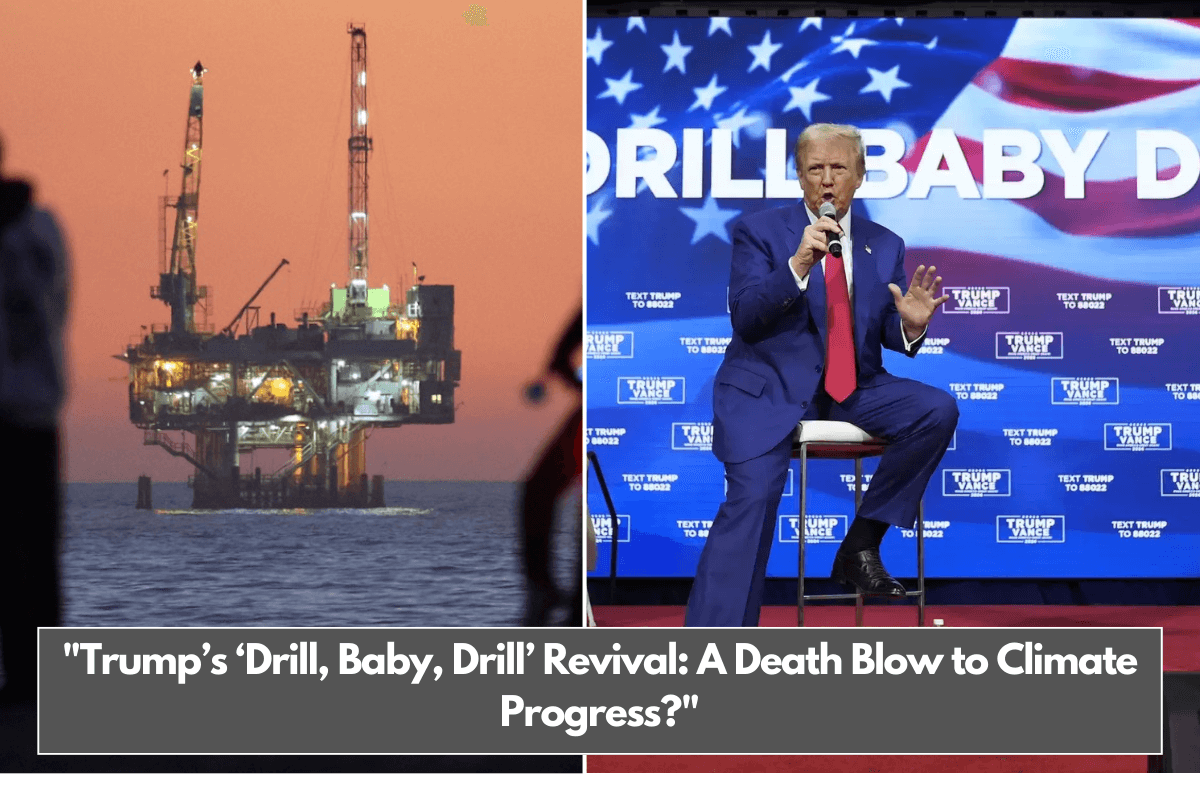Donald Trump’s second-term energy policies, centered around promoting fossil fuels and scaling back climate regulations, could have significant environmental, economic, and public health impacts. Researchers warn that if fully implemented, these policies could lead to increased greenhouse-gas emissions, air pollution-related deaths, and job losses across various sectors.
Key Policies Driving the Shift
“Drill, Baby, Drill” Approach
Trump’s administration aims to roll back clean-energy initiatives, end clean-energy incentives, and expand oil and gas development. This includes repealing key parts of the 2022 Inflation Reduction Act (IRA), which allocates over $1 trillion to emissions-cutting programs and green-energy development by 2032.
Rollback of Climate Regulations
The administration has targeted regulations on vehicle emissions, power plants, and industrial pollution that were put in place by the Biden administration to curb greenhouse gases.
Impact on Greenhouse-Gas Emissions
Projected Increases in Carbon Emissions
- Short-Term Impact: A study by Climate Analytics and Climate Action Tracker suggests that Trump’s policies could raise cumulative US carbon emissions by 2–4 billion tonnes by 2030.
- Long-Term Impact: Emissions could rise even higher in subsequent years, with the Rhodium Group estimating an additional 1 billion tonnes of annual emissions by 2035.
Global Warming Effects
- Temperature Rise: Although the estimated 2–4 billion tonnes of emissions could cause less than a tenth of a degree Celsius of warming by 2100, prolonged continuation of Trump’s policies could push global warming past the 1.5 °C target set by the Paris Agreement.
Bill Hare of Climate Analytics warns that these increased emissions would make it much harder for the US and other countries to meet their climate goals.
Public Health Risks
Increased Air Pollution and Premature Deaths
Trump’s energy policies, which promote coal and petrol use, could lead to higher levels of air pollution. This would increase exposure to harmful pollutants linked to respiratory and cardiovascular diseases.
- Premature Deaths: According to Energy Innovation Policy and Technology, the rollback of environmental protections could result in thousands of premature deaths annually by 2030 due to higher levels of air pollution.
Economic and Job Impacts
Job Losses Despite Energy Sector Gains
While Trump’s policies could create some jobs in the fossil fuel industry, experts predict that the overall economic impact would be negative.
- Net Job Losses: Research by Energy Innovation suggests that nearly 4 million jobs could be lost by 2030 due to the cancellation of clean-energy projects and reduced economic growth.
- Economic Slowdown: The renewable energy sector, which has been a major driver of job creation and investment, would be significantly affected by the rollback of green-energy incentives.
Ripple Effects on Global Climate Efforts
Trump’s policies could have far-reaching consequences beyond US borders by undermining global efforts to combat climate change. With the United States being one of the world’s largest carbon emitters, its withdrawal from climate agreements and reduction of clean-energy investments could encourage other nations to scale back their commitments.
Trump’s second-term energy and climate policies have sparked significant concern among researchers and environmentalists. The projected increases in emissions, air pollution-related deaths, and job losses highlight the potential risks of reversing clean-energy progress.
While the full impact will depend on how extensively these policies are implemented, it’s clear that they could set back US and global climate efforts, posing challenges for future generations.
